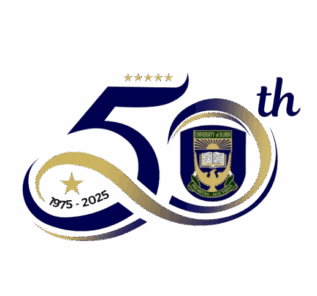La’aro calls for balance in sports coverage
By Mustafa Abubakar
A Senior Lecturer at the Department of Mass Communication, University of Ilorin,
Dr Abdulkadir Oba La’aro, has stressed that sports coverage must remain a journalistic endeavour where facts are sacred just as he urged reporters and commentators to maintain a fine balance between objectivity in live commentary and subjectivity in post-match analysis.
Dr La’aro made the call penultimate Saturday (September 20, 2025) while presenting a paper titled “The Role of Technology in Transforming Sports Coverage in Nigeria: From Radio to Internet” at the Beyond the Pitch Seminar organised by the AMAPRO African Development Project at the Ilorin Innovation Hub.
According to him, sports reporters and broadcasters must uphold professional integrity and safeguard the credibility of their media organisations by drawing a clear line between factual reporting and personal commentary.
Dr La’aro traced the history of sports reporting in Nigeria and beyond, noting its steady transformation through multiple technological eras, beginning with the print era of the 19th and early 20th centuries, when newspapers like Iwe Irohin (1859), West African Pilot (1937), Souvenir, and Complete Sports (1995) pioneered coverage of football and athletics. The Telegraph and global news agencies such as Reuters and AP enabled rapid transmission of scores and standardised sports news distribution.
He recalled that radio broadcasting in the 1920s introduced the first live sports broadcast by KDKA in 1921 and football commentary by the BBC in 1927, adding that in Nigeria, the Western Nigeria Broadcasting Service (WNBS) aired football commentary in 1959, while the Federal Radio Corporation of Nigeria (FRCN) created a culture of community listening.
According to him, broadcasting from the 1950s brought sports into homes with live visuals, colour television, and instant replays, turning events into spectacles and popularising both local and international competitions through the Nigerian Television Authority (NTA) and later SuperSport.
“The satellite and cable era of the 1980s and 1990s expanded global reach, with CNN and ESPN pioneering 24-hour sports broadcasting and SuperSport becoming a dominant force across Africa. The digital and internet age of the 1990s and 2000s introduced websites like ESPN.com and Nigerian sports blogs, which provided live scores and commentary, while the 2010s ushered in social media, podcasts, mobile apps, and real-time analytics that revolutionised fan engagement”.
“Today, platforms such as Twitter/X, Instagram, YouTube, WhatsApp, and Telegram have enabled fans to participate actively through live-tweeting, polls, memes, and discussions, while emerging technologies such as VR, AR, AI, blockchain, NFTs, and 5G are set to further transform sports consumption”, he said.
Dr La’aro emphasised that across these eras, certain themes have remained consistent: accessibility, speed, interactivity, commercialisation, and localisation.
He explained that these have impacted fan engagement, journalism practices, and economic opportunities while also presenting challenges such as piracy, misinformation, and the digital divide.
He also provided a Pestle analysis, pointing to the political regulation of broadcasting rights, the economic opportunities of sports marketing, the social role of sports in fostering national pride, the technological advances of AI and VR, legal concerns about copyright protection, and environmental benefits of reduced paper use through digital broadcasting.
In his submissions, the former Super Eagles midfielder and Chief Scout of Chelsea FC in Africa, Seyi Olofinjana, said technology is now central to football scouting, recruitment, and performance analysis.
He explained that adopting these tools would be a veritable pathway for successful player transfers to Europe.
Also speaking at the event, Mr Mohammed Elbadry, Chief Executive Officer of KoraStats, Egypt, emphasised the growing importance of sports analytics in tracking performance, preventing injuries, and strengthening football structures in Africa.
Speaking earlier, the organiser of the seminar, Shogo Shodunnke, CEO of Phreestyle Sports and Project Consultant for the programme, described the initiative as a step towards a revolution in Nigerian football through strategic innovation and technology adoption.
An alumnus of the University, Shodunnke said the seminar was designed not just to spark conversations but to lay practical foundations for bridging the gap between sports and technology in Africa.
He noted that Nigerian football must invest in capacity building for young people in areas such as sports data, communication, and management, while also promoting collaborations between clubs, federations, universities, and technology innovators.
